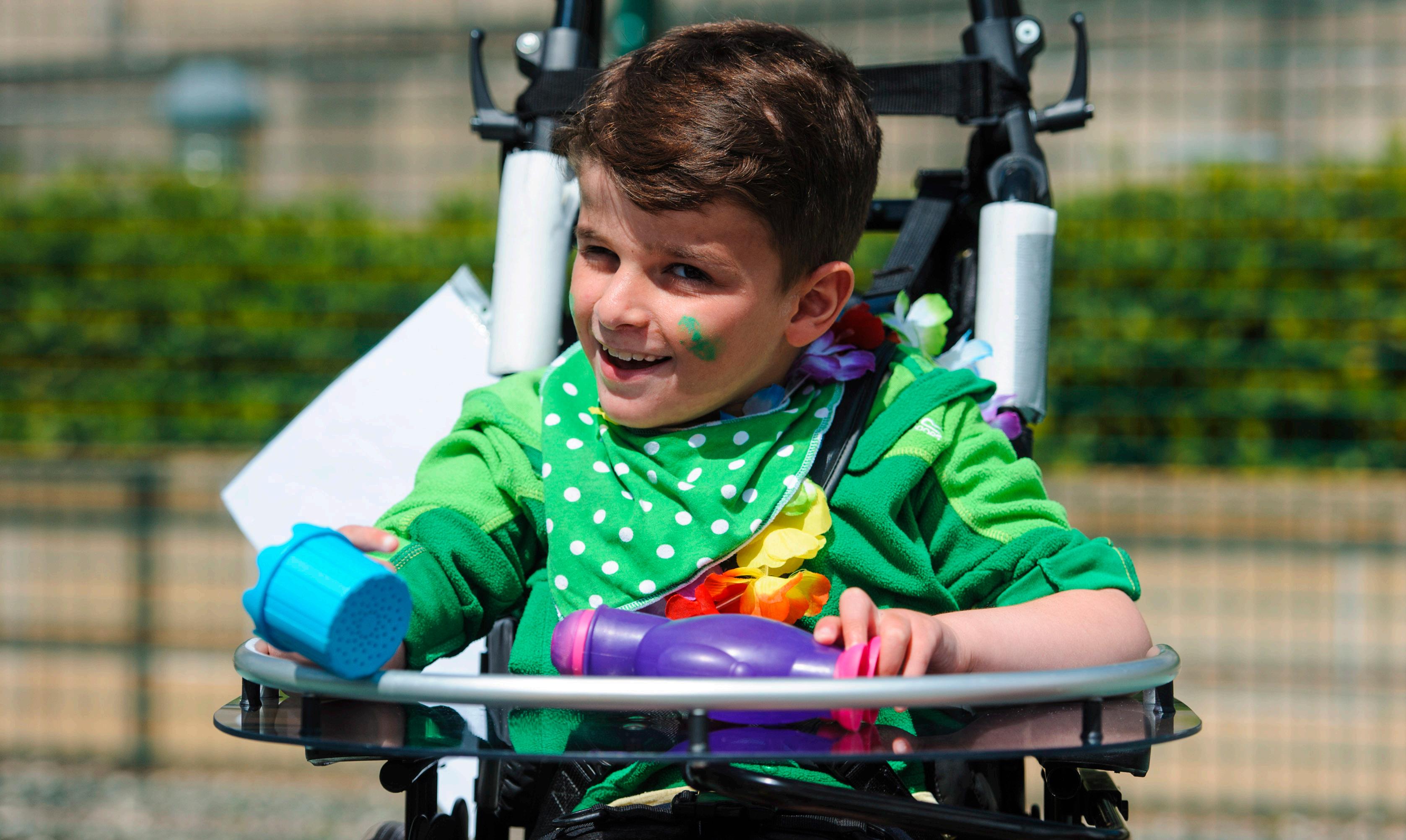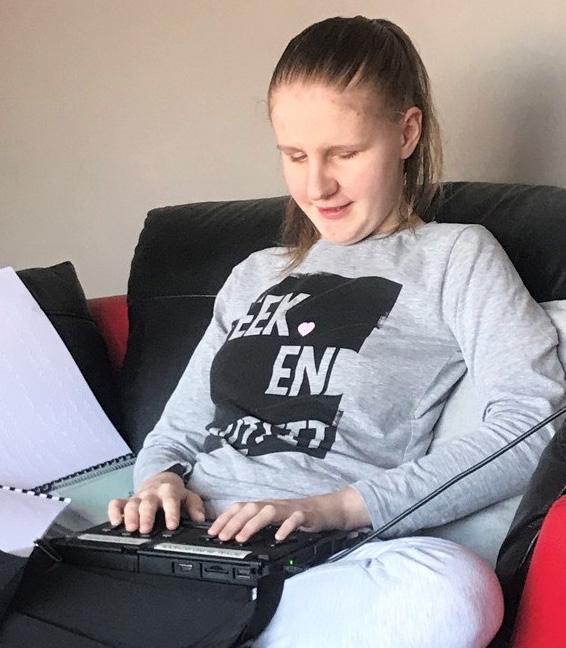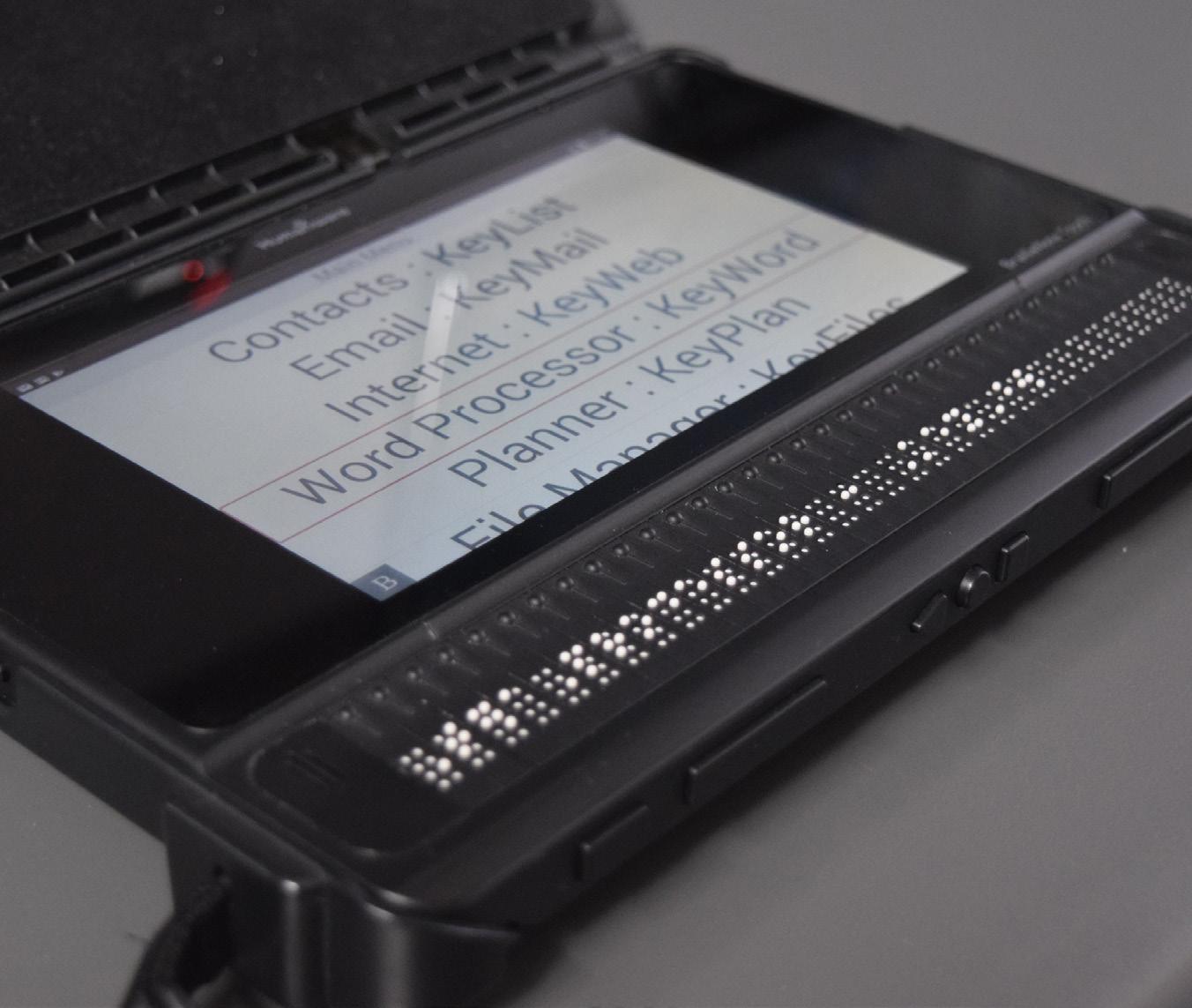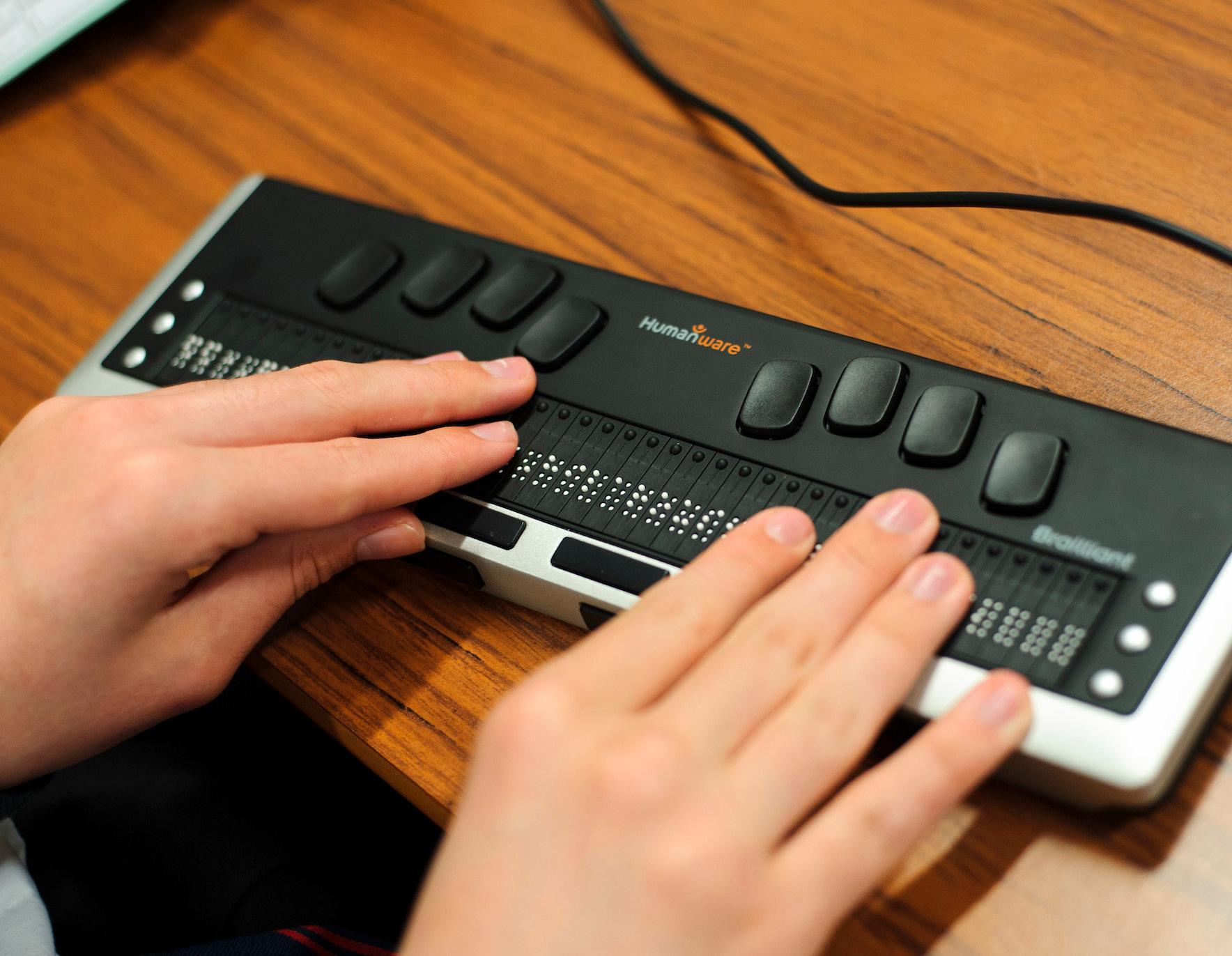
6 minute read
Learning
We provide specialist learning to pupils with visual impairment at the Royal Blind School in Edinburgh and in mainstream schools in three local authorities. Children and young people are at the centre of our approach. Each pupil’s learning is customised to them and their unique abilities. We teach children and young people vital skills and prepare them for the challenges of everyday life. Mobility skills, such as white cane training Use of specialist equipment, such as screenreading software Access to learning through braille and large print
Guidance for school staff Everyday life skills Social skills and transitions
Royal Blind School
We want to reach everyone with sight loss – when and where they need us. In 2020, to ensure the long-term sustainability of the Royal Blind School and our wider learning services, we restructured the school. This restructuring involved analysing pupils’ needs and the underlying cost of delivering services. The new structure has made a major positive impact on the long-term sustainability of the school and our wider learning offering. We successfully recruited a new Head of Learning to consolidate these changes and to develop the strategic direction of all our learning services. Our teachers and support staff continue to provide an outstanding level of specialist teaching to the children and young people in our care. When the Coronavirus lockdown closed school premises in March 2020, our teachers adapted their teaching to support children and young people learning at home. The Royal Blind School’s day pupils were taught how to use Microsoft Teams video conferencing software, so they could log in to group and one-to-one lessons online. Many pupils learned to email their schoolwork to teachers. We provided coaching to parents too, to help them support their child’s remote learning. Royal Blind School residential pupils, who reside with us 52 weeks a year, continued their learning on-site. In August, following government guidance, the Royal Blind School’s day pupils returned to our premises in Canaan Lane in Edinburgh for their tuition. Pupils enjoyed being back in the classroom with their friends. Our pupils, families, teachers, support staff, care workers and school community all worked collaboratively to follow guidelines and keep everyone safe.
Learning in mainstream schools
In 2020, we significantly increased our learning support to children with visual impairment who attend mainstream schools. We successfully secured a local authority contract to support up to 50 pupils with visual impairment living in Midlothian. This added to our existing provision of support to 52 pupils in the East Lothian council area, and to our support for 8 pupils in the Orkney Islands. We also began supporting 60 students with visual impairment who attend Edinburgh College. Students were assisted in their educational progress, as well as their inclusion in college life. Our Qualified Teachers of Children and Young People with Vision Impairment (QTVIs) supported not only pupils and their families, but also teachers and support staff. This helps bring a deeper understanding of visual impairment and builds teachers’ confidence in using strategies and resources to maximise pupils’ access to the curriculum. New student teachers will be equipped with this knowledge too, as we began a support service to Edinburgh’s Queen Margaret University in 2020. We helped to shape the curriculum in the context of inclusive education. Our input raised awareness of the issues faced by children with visual impairment among those studying for a Bachelor of Education degree (Primary).
Royal Blind School 20 pupils Orkney Council schools 8 pupils
East Lothian Council 52 pupils Midlothian Council schools 50 pupils
Advising on inclusive education for Queen Margaret University’s Bachelor of Education degree Edinburgh College 60 students
Amy’s story

Amy doing her schoolwork at home on her BrailleNote Touch
Royal Blind School pupils like Amy learnt many new skills during the first 2020 lockdown. When the school premises closed for day pupils, Amy was supported to continue learning at home. Amy used a BrailleNote Touch tablet to write, send and receive her schoolwork and attended online lessons using Microsoft Teams. Amy’s mother, Gillian, said Amy looked forward to online lessons with classmates. “Amy really enjoys the group lesson on Wednesdays. She has been completing English, Maths, Science, History and Geography work. Amy is so proud of her achievements, and I am amazed by her progress,” Gillian said. Amy uses a BrailleNote Touch device, which is an electronic braille notetaker with the power of a modern tablet. Pupils use the devices to write and edit documents, read books, send and receive emails and browse the internet. Gillian said: “Amy is enjoying being able to independently access assignments sent by her teachers to her BrailleNote Touch. She completes the work and then sends it back to her teachers. She loves doing her homework. “Seeing how motivated Amy was to learn how to do this has led me to understand how important a BrailleNote Touch will be for her future, as sending and receiving emails is a skill we all need to have. Just watching her on her BrailleNote really lifts me. The difference I have noticed is unreal.” Royal Blind School teachers also used video conferencing to run drama, music and PE lessons remotely. The school’s Habilitation team offered parents advice, such as on maintaining pupils’ long cane skills.

The BrailleNote Touch has a refreshable braille display, which braille readers use to read emails, documents and web pages.
Angus’s story


Angus, a 17-yearold high school pupil that Sight Scotland provides support to.
Angus is one of the 52 pupils living in East Lothian who we support. Angus attends Ross High School in Tranent. The gregarious 17-year-old is supported in his learning by Anna Christal, one of our Qualified Teachers of Children and Young People with Vision Impairment (QTVI). Angus said: “Recently, we’ve been reading about the work available out there. The kind of job that caught my eye is working in an office with computers. “Ms Christal and I talk about the software I’d use, the office layout and the assistive technology I could use. Recently we’ve been working on how people would want to see the work in Word Documents, such as using lists and putting text in bold and different fonts.” Angus uses specialist software to access Microsoft and compile spreadsheets. In the 2020-2021 school year, Angus passed several school subjects, including National 5 Applications of Mathematics. Angus said: “It’s real-world mathematics: the things you’d see yourself doing in later life, such as budgets, getting a house, paying insurance, or working out how much to cut off wood or like packing a container.” One of the most useful skills Ms Christal has coached Angus on is self-advocacy. Angus said: “She helped me realise the gap between what I was or wasn’t receiving and what I could get – and how I could ask for it. “The biggest difference has been selfawareness and self-advocacy: knowing how to ask people to do things in a way that’s right for you.” Angus said he’s looking forward to putting his skills to use. “The specialist support I have received at school has been so important to me and now I’m looking forward to the future after school, doing more as a DJ and hopefully working in computers and technology.”








